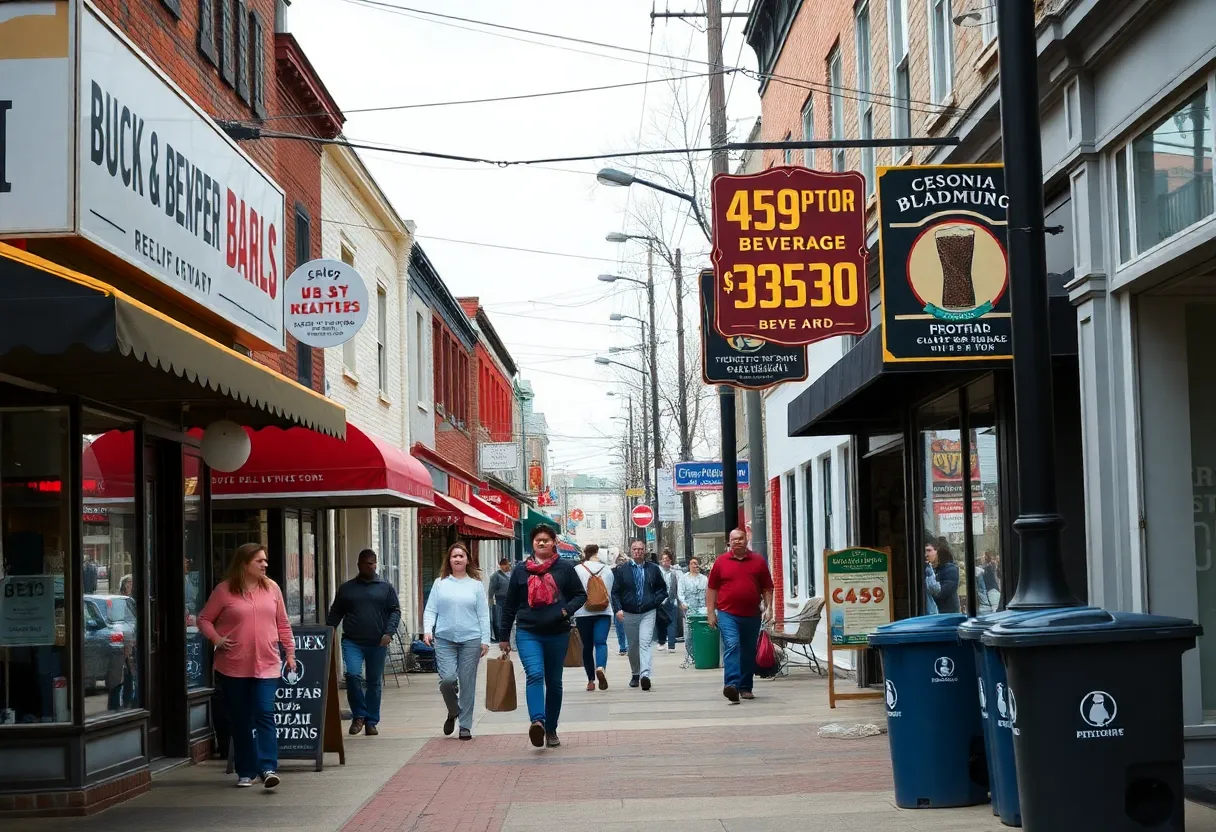News Summary
Rhode Island is currently engaged in a heated debate over a proposed bill that would impose a 10-cent deposit on all beverage containers. Proponents argue it could significantly reduce waste and litter, while opponents, including local business owners, fear the potential economic impact amid rising inflation. Concerns have been raised about consumer behavior shifting to neighboring states with lower fees, potentially harming local businesses. Alternative solutions are also being discussed to improve recycling efforts, showcasing the complexity of balancing environmental goals with economic realities.
Rhode Island is facing a contentious debate as legislators review a proposed bottle deposit bill that would impose a 10-cent deposit fee on all bottles and cans sold within the state. While proponents argue this measure is essential for reducing waste and litter, local business owners and some residents express concerns about its potential impact on the economy, particularly amid rising costs associated with inflation.
The proposed legislation is structured to implement a redemption program, where consumers would be refunded their deposits when returning bottles to designated collection points. This initiative aims to discourage littering and alleviate pressure on landfills, which have become increasingly burdened by waste. However, with the bill not yet voted on, it remains a significant topic in the current legislative session, garnering attention from environmental groups advocating for enhanced recycling practices.
Local business owners like Christopher Liu, who runs Asiana Food Market in East Providence, have vocalized their apprehensions regarding the bottle tax. Liu argues that the immediate increase in costs for products will negatively affect both local businesses and consumers, particularly low-income families who are already grappling with escalating household expenses. He emphasizes that these businesses may either increase prices or cut expenses, potentially impacting employee salaries.
Concerns have also been raised over consumer behavior; some fear that customers may choose to shop in neighboring states with lower fees, culminating in revenue losses for Rhode Island’s businesses. This situation could exacerbate financial strains for local entities that are still recovering from previous economic disruptions.
Further complicating the discussion, a recent survey conducted by the Stop the Rhode Island Bottle Tax group revealed that 60% of respondents were against the proposed bottle tax when framed as a price hike. For many, the timing appears unfavorable, as the state’s residents are dealing with rising living costs. Business leaders have cautioned that introducing additional fees could be detrimental amid such economic challenges.
While some state senators have proposed alternative solutions to improve recycling efforts, such as the Extended Producer Responsibility (EPR) model, discussions continue around the proposed bottle deposit bill. The EPR model shifts the financial responsibility of recycling to manufacturers, potentially enhancing recycling rates across various materials—not just bottles. This model has seen success in other regions, and its consideration reflects the complexity and multifaceted approach required for effective waste management reform.
During a recent hearing in the Senate Committee on Environment and Agriculture, various stakeholders presented their perspectives. Some beverage industry representatives articulated doubts regarding the practicality of the redemption program, proposing enhancements to current curbside recycling systems instead. Mixed feedback highlights the need for comprehensive solutions that take into account both environmental imperatives and the economic realities faced by businesses and consumers.
As Rhode Island navigates the proposed bottle deposit bill and initiatives for extended producer responsibility, lawmakers will need to balance environmental priorities with the economic wellbeing of residents and businesses. Pivotal discussions are expected to continue throughout the legislative session, reflecting the diverse interests at play in advancing sustainable practices while supporting local economies.
Deeper Dive: News & Info About This Topic
- Rhode Island Current: R.I. Bottle Bill Faces Fierce Industry Opposition
- ABC6: Bottle Deposit Could Be Coming to Rhode Island
- Providence Journal: Does R.I. Want a Bottle Bill?
- Recycling Today: Combined DRS, EPR Legislation Introduced in Rhode Island
- WPRI: Polls Show Divide Over R.I. Bottle Bill Ahead of Senate Hearing
- Wikipedia: Bottle Deposit
- Google Search: Bottle Deposit Legislation
- Google Scholar: Bottle Deposit System
- Encyclopedia Britannica: Bottle Deposit
- Google News: Bottle Deposit News

Author: STAFF HERE PROVIDENCE WRITER
The PROVIDENCE STAFF WRITER represents the experienced team at HEREProvidence.com, your go-to source for actionable local news and information in Providence, Providence County, and beyond. Specializing in "news you can use," we cover essential topics like product reviews for personal and business needs, local business directories, politics, real estate trends, neighborhood insights, and state news affecting the area—with deep expertise drawn from years of dedicated reporting and strong community input, including local press releases and business updates. We deliver top reporting on high-value events such as WaterFire, Rhode Island International Film Festival, and Rhode Island Comic Con. Our coverage extends to key organizations like the Greater Providence Chamber of Commerce and Providence Warwick Convention & Visitors Bureau, plus leading businesses in finance and manufacturing that power the local economy such as Citizens Financial Group and Textron. As part of the broader HERE network, we provide comprehensive, credible insights into Rhode Island's dynamic landscape.





